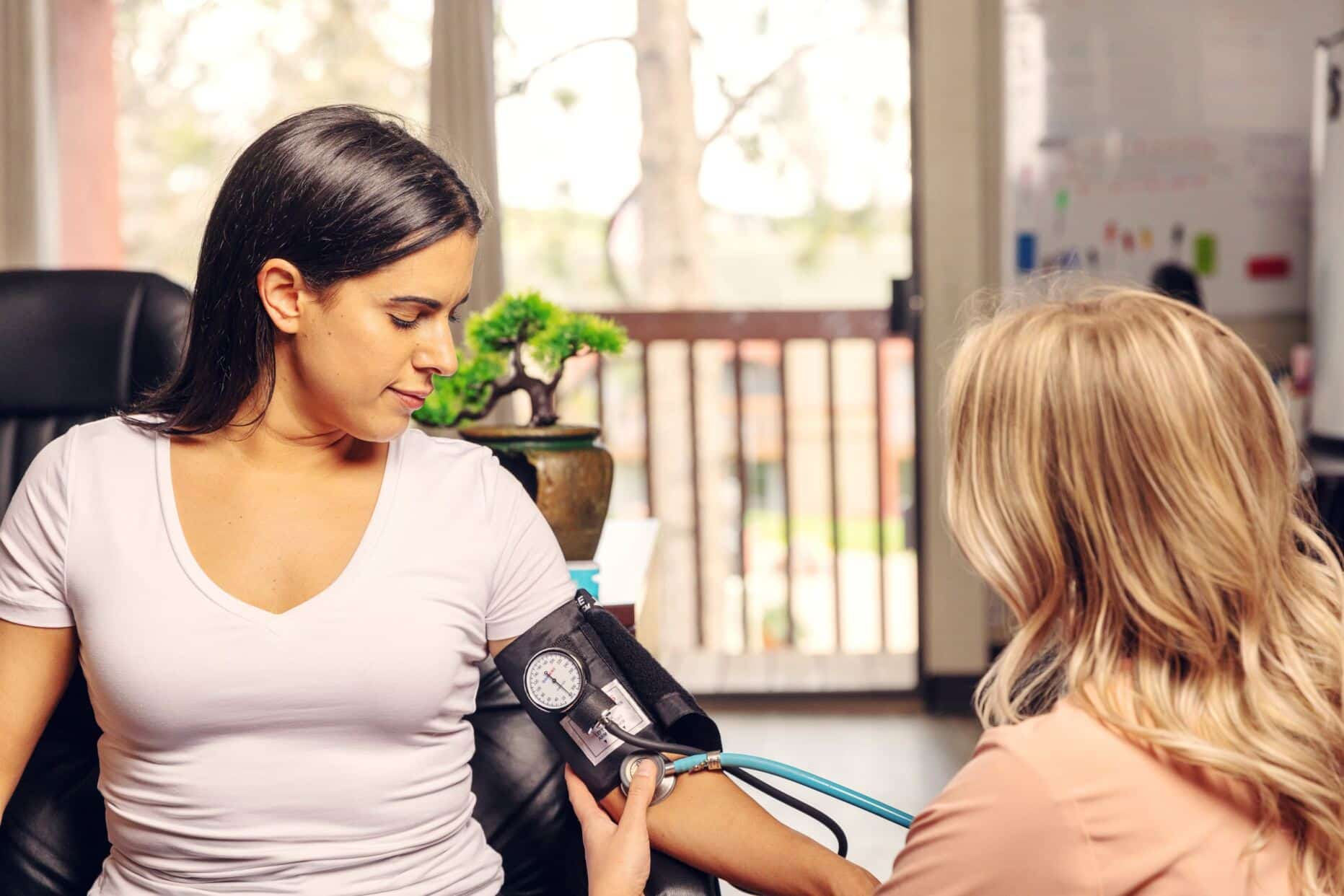There is no single cause for alcohol use disorder (AUD), but here are some of the signs, symptoms, and risks to look for to protect yourself from addiction.
Historically, alcoholism has been known by a number of terms, including alcohol dependence and alcohol abuse. For addiction professionals today, it’s known as alcohol use disorder (AUD). This condition occurs when someone drinks so much that their body becomes physically dependent on alcohol and it becomes the most important thing in their life.
Those with AUD continue to drink even when it causes negative repercussions, such as losing a job or destroying marriage and other important relationships. They often understand that alcohol is destroying their lives. However, it’s usually not enough to get them to stop drinking.
What Causes It?
No single cause of alcoholism has been determined, likely because it’s most often due to a combination of factors. However, it is known that alcohol use disorder causes chemical changes in the brain that increase the pleasurable feelings when you drink, making you want to drink more and more often – even if it causes serious problems in your life.
To make matters worse, these pleasurable feelings that those with AUD first experience eventually stop, so continued drinking turns into a way to prevent withdrawal symptoms. They can be extremely unpleasant and even deadly. Alcoholism is known to run in families and usually develops gradually over time. Although the exact cause of alcoholism cannot be pinpointed, there are multiple factors that can increase one’s risk for developing it, including:
Risk Factors of Alcohol Use Disorder
Are alcohol and drugs ruining your life?
Find help now
Symptoms of Alcoholism
The symptoms of alcoholism are based on certain behaviors and physical outcomes occurring due to alcohol addiction, including:
- Drinking alone
- Increasing drinking to feel pleasurable effects (developing a higher tolerance)
- Becoming defensive or violent when asked about drinking habits
- Eating poorly or not at all
- Binge drinking
- Poor personal hygiene
- Missing school or work due to drinking
- Being unable to control the amount you drink
- Creating excuses to drink
- Continuing to drink even when financial, social or legal problems develop
- Giving up important social, recreational or occupational activities due to drinking
The following physical symptoms are also signs of alcohol use disorder:
- Alcohol cravings
- Withdrawal symptoms, including nausea, vomiting and shaking
- Tremors the morning after drinking
- Lapses in memory after a night of drinking (blacking out)
- Illnesses such as alcohol ketoacidosis or cirrhosis
Do I Misuse Alcohol?
Sometimes it’s difficult to determine the difference between safe alcohol use and the abuse of alcohol. However, if you answer ‘yes’ to some of the following questions, you may have alcohol use disorder.
- Do I need to drink more in order to feel the pleasurable effects of alcohol?
- Do I feel guilty about my drinking?
- Do I become irritable or violent when drinking?
- Do I have problems at work or school due to drinking?
- Do I think it might be beneficial to cut back on my drinking?
Getting a Professional Diagnosis
Your physician can do a physical exam and ask you important questions in order to diagnose alcohol use disorder.
Questions they may ask include:
- Do you drink and drive?
- Do you miss work or school due to drinking?
- Have you lost a job due to drinking?
- Do you need to drink more to feel drunk?
- Have you experienced blackouts?
- Have you tried to cut back but can’t?
Typically, verbal questioning is sufficient to determine if you have alcohol use disorder or not. However, it’s important for your doctor to order blood work to determine if your liver function shows signs of liver dysfunction or disease, as alcohol misuse can cause lasting damage to your liver. Because your liver functions to remove toxins from your blood, it has a harder time filtering toxins when you drink too much, leading to liver disease and other complications, which may include:
- Gastrointestinal bleeding
- Brain cell damage
- Gastrointestinal tract cancer
- Dementia
- Anxiety
- Depression
- High blood pressure
- Nerve damage
- Alcohol-related pancreatitis (inflammation of the pancreas)
- Changes in mental condition, including Wernicke-Korsakoff syndrome, a brain disease that causes vision changes, confusion and memory loss
How Is Alcohol Use Disorder Treated?
Treatment for alcoholismvaries, but all methods are designed to help you attain permanent abstinence and live a more fulfilling life because of it.
Treatment typically occurs in stages and may include:
- Medical detoxification to prevent dangerous or deadly withdrawal symptoms
- Inpatient rehabilitation to learn new behaviors and coping skills
- Intensive outpatient group therapy
- Counseling to address emotional issues that are triggers to drink
- Attending recovery support groups, including 12-step programs like Alcoholics Anonymous (AA)
- Medical treatment for health issues related to alcohol abuse
- Medications to control cravings
- Medications for mental health disorders
Medications that may help reduce or prevent the symptoms of alcohol use disorder include:
- Naltrexone (ReVia), which can only be used after detoxification from alcohol. This drug blocks the receptors in the brain that produce an alcoholic high. Used in conjunction with counseling, naltrexone can be effective in reducing alcohol cravings.
- Acamprosate can aid in re-establishing the brain’s chemical state prior to alcohol dependence and should also be combined with therapy.
- Disulfiram (Antabuse) causes severe physical discomfort when someone consumes alcohol, including headaches and extreme nausea and vomiting
Inpatient treatment facilities can provide 24-hour care during detox and the early stages of recovery. Often, outpatient therapy is recommended once inpatient treatment is completed.
The Outlook for Alcohol Use Disorder
It’s extremely difficult, but highly possible, to recover from alcohol use disorder. The first step is the desire and willingness to stop drinking. Many people who seektreatment for alcoholism are able to overcome their addiction. However, a strong support system is necessary to maintain sobriety and live a fulfilling life in recovery.
How to Prevent Alcohol Use Disorder
The best way to prevent alcohol use disorder is to limit your alcohol intake. The National Institute on Alcohol Abuse and Alcoholism recommends that men should not drink more than two drinks per day and women no more than one drink per day.
It’s important to see your doctor if you believe you are engaging in behaviors that are red flags for alcohol use disorder. You can also consider attending an AA meeting for support or participating in self-help programs such as Sober Recovery or Women for Sobriety or even calling an alcohol addiction hotline.
If addiction has taken over your life or the life of someone you love, you should know that there are treatment programs for Alcohol Use Disorder. Whether seekinginpatient rehab, intensive outpatient programs, or an aftercare program that helps to keep you sober, you have options.
Sources:
- niaaa.nih.gov – National Institute on Alcohol Abuse and Alcoholism
- pubs.niaaa.nih.gov -National Institute on Alcohol Abuse and Alcoholism
- health.harvard.edu – Harvard Medical School
- niaaa.nih.gov – National Institute on Alcohol Abuse and Alcoholism
- emra.org – Emergency Medicine Residents’ Association
- stanfordhealthcare.org -Stanford Health Care
- .ncbi.nlm.nih.gov -National Center for Biotechnology Information
- niaaa.nih.gov – National Institute on Alcohol Abuse and Alcoholism
Medical disclaimer:
Sunshine Behavioral Health strives to help people who are facing substance abuse, addiction, mental health disorders, or a combination of these conditions. It does this by providing compassionate care and evidence-based content that addresses health, treatment, and recovery.
Licensed medical professionals review material we publish on our site. The material is not a substitute for qualified medical diagnoses, treatment, or advice. It should not be used to replace the suggestions of your personal physician or other health care professionals.






